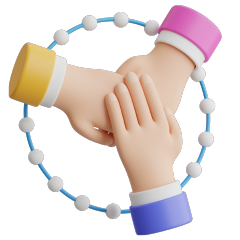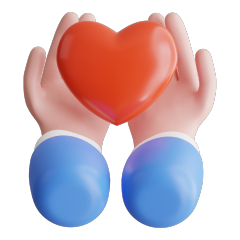Shining light on Domestic Violence

In this blog, we present three powerful interviews that bring to light the personal experiences of individuals affected by domestic violence in Australia.
1 in 5 Australians have experienced violence, emotional abuse or economic abuse by a partner (ABS)
Let’s stop the violence before it starts.
- Domestic violence is a major health and welfare issue in Australia.
- It occurs across all socioeconomic and demographic groups, and can have a serious impact on individuals, families and communities.
- These effects can be long-lasting and can affect future generations.
We’ve seen the statistics (and if you haven’t, head over to our blog, Understanding Domestic and Family violence), but to truly understand the issue, we need to hear the stories.
In this blog, we present three powerful interviews that bring to light the personal experiences of individuals affected by domestic violence in Australia. By sharing these stories, we hope to show that this issue is real, and it’s not always obvious who is suffering.
Table of Contents
Part 1 of our series features Simone, international speaker and domestic abuse survivor.
Part 2 introduces Claudia, a counsellor with ten years of experience working with victims of domestic violence.
Part 3 we sit down with Marina, shelter manager at south-west Sydney women’s refuge, Biyani House.
We then share how your workplace can take a stand against domestic violence, using these stories as a catalyst to initiate conversations with your colleagues, friends, and family. As leaders, taking an active role in this issue will assist in creating a safer and more supportive community, both inside and outside the workplace.
Speaking with Simone, a domestic violence survivor 💪
In 2012, Simone suffered a horrific act of domestic violence. She was beaten with a baseball bat to within inches of her life, an attack which has taken her right-side eyesight and sense of smell. Simone’s skull is now held together with screws and titanium plates.
In light of such a horrific event, Simone has turned her story into one of strength and resilience, sharing her experience with communities and businesses internationally to spread awareness for domestic violence. We were honoured to speak with Simone, to learn more about her interactions with members of the community and how she’s championing for non-violence in the community.
“Please don’t hide away. There’s help there, and it’s not embarrassing. That’s my biggest thing, domestic violence is not embarrassing. And it’s not you, there’s someone else that needs help, but you don’t need to hide away. Everything will be okay. Please speak up.”Simone O’Brien
Domestic violence: a survivor’s story
Conversations with Claudia, a counsellor specialising in domestic and family violence
With more than ten years of dedicated experience in the field, Claudia has worked extensively with victims, children, friends, and perpetrators of domestic violence. Her comprehensive understanding of the emotional, psychological, and social dimensions of domestic violence, combined with her hands-on expertise, makes her an authority on the issue.
Here’s just a few of the things we learnt in our conversation with Claudia 💫
1️⃣ Domestic and family violence is not just physical. It’s living in fear, intimidation, emotional manipulation, financial control, sexual abuse and verbal abuse. These forms of abuse are often swept aside or minimised, but can be equally traumatising for victims to endure.
2️⃣ Domestic and family violence is gradual. There is a cycle of abuse that starts with a honeymoon period, before tensions start to build and lead to abuse. Victims become trapped in cycles of psychological abuse and manipulation, that can be incredibly difficult to break through.
3️⃣ Many communities and minority groups are exposed to increased risk of domestic and family violence. Unique cultural and generational experiences, a lack of relevant and culturally specific services and language barriers influence the experience of people from cultural and linguistically diverse backgrounds in seeking and receiving help for domestic violence.
Domestic violence: a counsellor’s experience
In conversation with Biyani House Women’s Shelter
Biyani House provides safe shelter for women and their children experiencing domestic and family violence in south-west Sydney. It was with immense gratitude that we were able to speak with their shelter manager, Marina, given the sensitivity of their work and current demand for their services. This episode provides an insight into the harsh reality of domestic violence. It can be all encompassing, affecting the livelihood of not just the victim, but families, friends and communities.
In addition to providing a safe haven for women and children escaping domestic and family violence, Biyani House offer:
- safety planning and case management
- support coordination
- networking with social and community
- participation activities for children
- parent coaching, mentoring, and support
- individual support for both adults and children
With growing demand for assistance facing a shortage of affordable housing, organisations like Biyani House are emphasising the need to raise awareness for domestic violence.
Domestic Violence: In conversation with Biyani House
“We start with the children and young people, because domestic violence can be a cycle. We know when children experience domestic violence (with their parents), they are more likely to fall into the same trap. Raising awareness is important and this should start from school.”Marina, shelter manager – Biyani House
How can your workplace champion non-violence?
There are several ways your workplace can spread awareness, support employees affected by domestic violence and champion non-violence.
- Implement training programs and workshops to educate employees on recognising and addressing domestic violence. Here at Leora, this is very close to our heart and something we facilitate for our interested clients.
- Establish clear policies and procedures, along with confidential support services like booking in with a therapist on the Leora app, or utilising the Live Chat with a Counsellor service, to create a safe working environment.
- Promoting a culture of non-violence through zero-tolerance policies and communication campaigns.
- Engaging with local domestic violence organisations, like Biyani House, and community initiatives further strengthens the company’s role in preventing domestic violence.
- Consider bringing in someone like Simone to speak to your team. Stories like hers are incredibly impactful for people to hear firsthand, and effectively showcase your business culture.
If you are interested in learning more about how your workplace can champion non-violence and help spread awareness, please get in touch by filling out this form.





